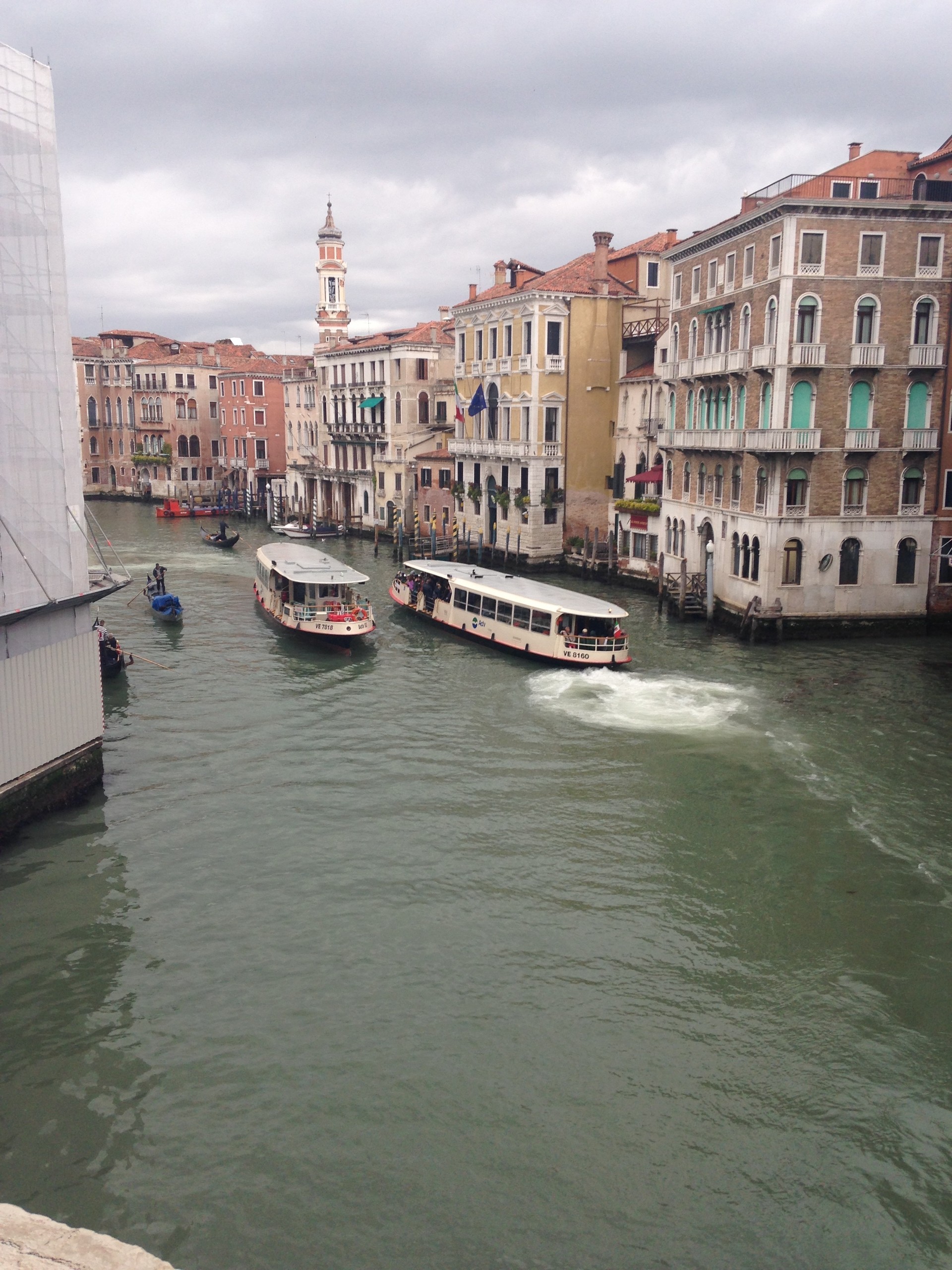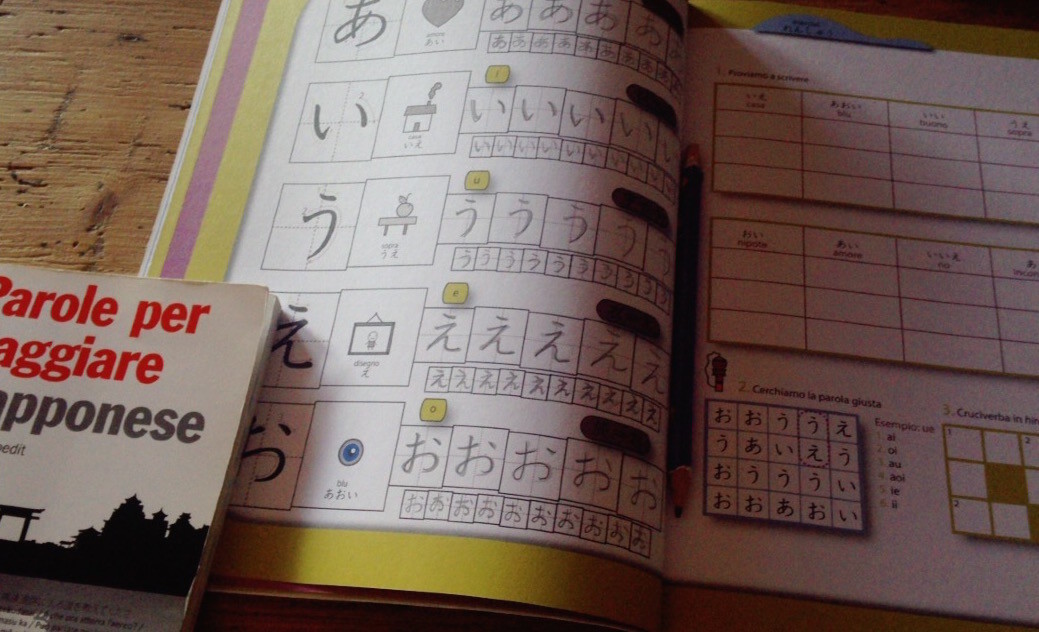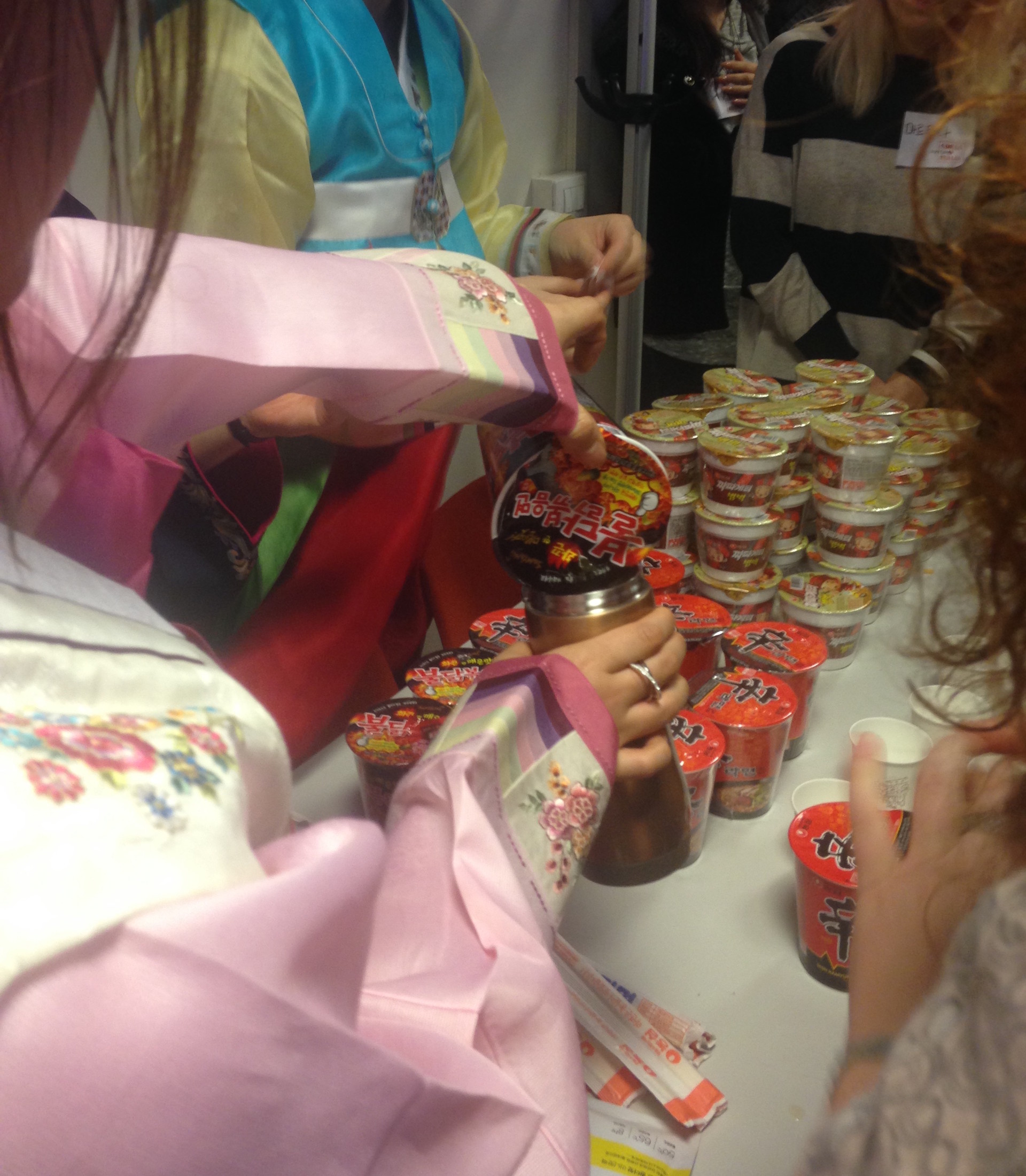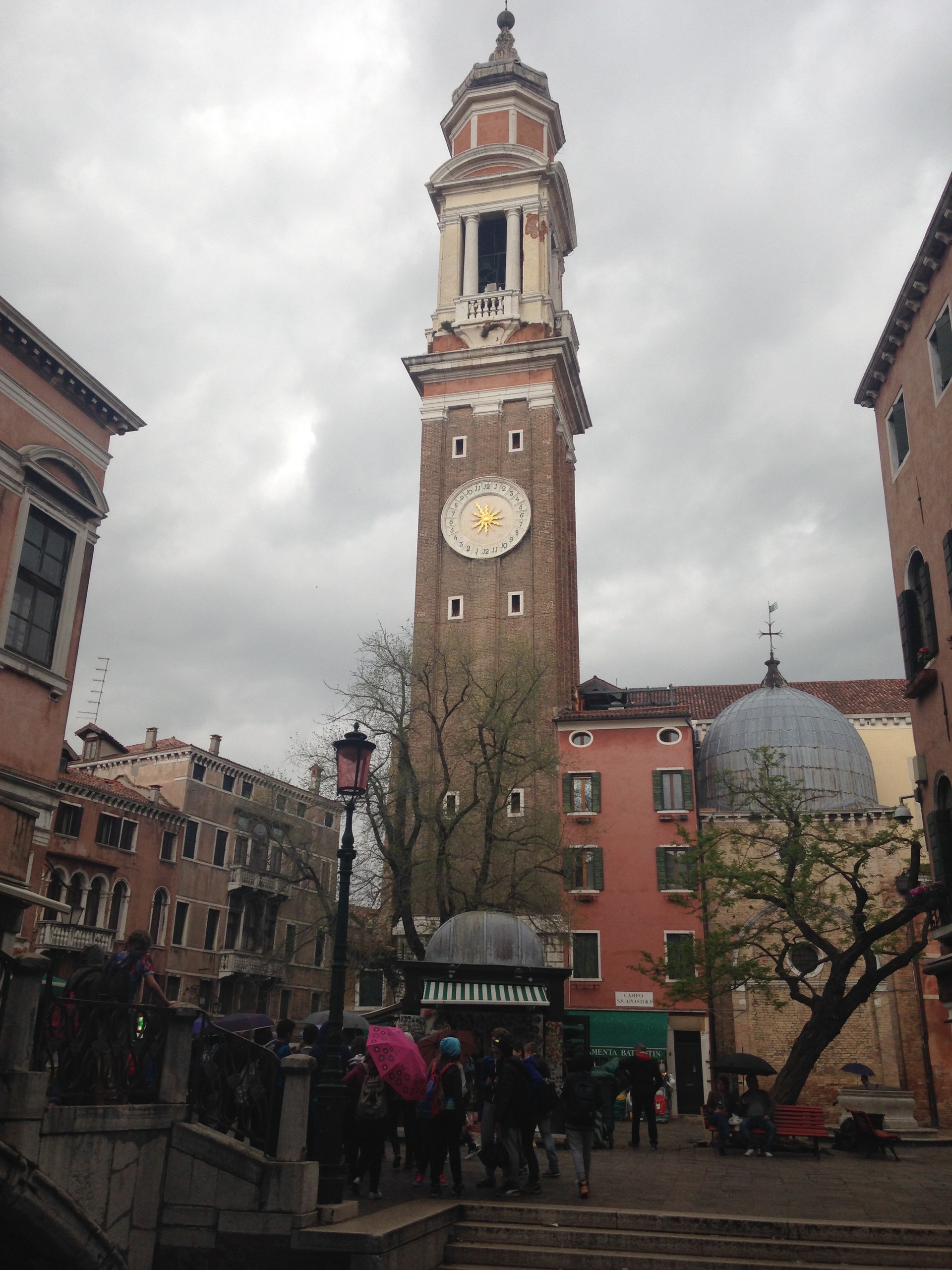Studying Korean in Venice
My dear, sweet university. To tell the truth, I wouldn't even know where to start in giving a general idea, but I will try to be as clear as possible. Clear in name and in fact, only one guarantee, but lets put jokes aside.

If I had to express myself about something that I know very well, it would be my faculty, which is Languages, Cultures and Societies of Asia and Mediterranean Africa ("Eastern Languages") , and the department that represents it. The ramification that I have chosen, namely the Korean curriculum, does not brag about decades and decades of history in comparison to the Chinese and Japanese, which have many more opportunities for internships, apprenticeships and project exchange programmes, especially through Erasmus. In any case, it is justifiable. In addition to these three types [of ramification (Korean, Chinese, Japanese)] it is possible to choose an Arabic or Hindi alternative as the first language, but unfortunately, for reasons that are still unknown to me, they are considered "minority languages", ergo a second language is added, which must be studied as intensively as the first and will be started from the first year, and then a third based on career plan settings for a credit issue. All this consists of practice, but there is also the possibility of choosing another language and not a third one, for example: choosing Chinese, therefore choosing something really tough and which is set out in a completely different way from minority languages. Obviously, even in the first curriculum such reasoning can be used, given that in addition to a second language that may coincide with those of the other curriculum, we have the possibility of studying Thai, Georgian, Turkish, Persian, Tibetan and so on. If you are reading this right now, you have an irresistible urge to enter into a faculty like this and learn as many languages as you possibly can, because you have 36 credits to fill to your liking, of which 12 are mandatory. But anyone who intends to have a level of skills equal to the first non-minority choice, prepare for mere resignation or otherwise prepare to become the Flash of the poor in Dorsoduro, running from one university to the other, to fall prey to tachycardia and confusion with all the conversation exercises you have to follow and any partitions by surname and typologies.
I still remember last year when I tried to sneak into two Japanese lessons, one about grammar and one about conversation, because I was too over-eager to wait for the second year and I wanted to develop a solid knowledge regardless of the actual reality. The only positive memory I have of that experience is to have known one of my dearest friends, because otherwise all I remember is the professor looking at me, disgusted because I did not have the handouts to be able to better understand the lesson. This year I finally arrived on time to academic lessons for the second language but after the previous year spent cultivating the willpower to replicate this intent and justifying myself with the fact that I had to first develop a good base with Korean to avoid getting confused, above all before getting my fill of Japanese books, I now drag myself to class with the appearance of a zombie that doesn't feed on brains, but on nicotine and caffeine.

I do not want to go into the general second language discipline, because this reasoning can be applied to any subject, whose lecturer does not inspire the interest of the students in front of them. But, do not expect to have an exhaustive framework even from the grammatical perspective; some professors will simply read the slides they have at their disposal, whether they are their own or not. There are also those wonderful cases where you might have someone who is not able to teach, either because they are not inclined to do their job, or because of linguistic requirements they does not have. Nevertheless, there are teachers with a curriculum to be envied by everyone, who are very young, born for that occupation and who you can't wait to see again the following week. And when you have completely lost your mind, because intellectually it is an unprecedented platonic feeling, they will go to another university, breaking your heart and causing an academic loss that is not remotely comparable to the break up with a romantic partner, a broken friendship, the iPhone in the toilet and your dog abducted by aliens.
Why am I telling you all of this? This is just a negative and semi-positive nuance, depending on how you want to look at it. Ca ’Foscari University is the best in Italy for Oriental languages and is included in various classifications for teaching and the opportunities it offers. Although I have never been to other universities, by means of classmates dissatisfied with similar courses in other cities and exchange students coming from even from the furthest places, the name of this Venetian pearl echoes sovereign. It is inevitable that not everything is 100% perfect but, in my opinion, when the teaching fails, the student's ability comes into play. In the end it is like a love affair, 50% is done by the school and the remaining 50% by the student.
In addition to providing a well-founded knowledge for the first language, the faculty of Oriental languages corroborates this with good cultural background knowledge through other academic disciplines that concern history, literature, art, philosophy and economics about the country being studied. But getting to embark upon this path of your future is not so immediate. In my opinion, subscribing to a website, maybe one with discount codes that I will never use, already brings me a certain amount of anxiety, let alone a choice of this caliber. To get in, before enrollment, you need to do an admission test and what a test it is! But seriously, it's nothing extraordinary, just a little willpower and a little squeeze of your brain for Italian grammar, of the sequences you know yourself and in your mother tongue first, then abstract and mathematical logic, which with any book of the general ones on pre university preparation, English, because in the 21st century it is a passe-partout and you cannot access the exams of the second year without it, and general basics on the decided curriculum, for which sites like sapere.it or Wikipedia and some kind of encyclopedia will be your combat weapons. It is true that there is always that eventuality in which three people will present themselves and, with only a few points already obtained for the result of the diploma or for the average of the votes to the superior, they can leave the test blank and enter. But from personal experience, from as early as the first spring session of the test there were about a thousand people, so "May the odds ever in your favor", especially if you chose Chinese or Japanese, although there are more than a hundred of places for each of those. In case something goes wrong, don't get too upset, as there is also a summer period to try again, but good luck to those of you who will stay in Venice during the summer, because the heat is lethal. Soon you will notice how lucky those in the economic area are to stay in San Giobbe, where they concentrate all their lessons into one are whilst you are ready to be a marathon runner in Dorsoduro, especially when you study two courses in two diametrically opposed places.
Too lazy to leave the house and actually find out where the buildings are? All courses are free, so no one will make an appeal to check your presence in the classroom, although there are professors who will not allow you to pass the exams if you do not attend their classes. If you can afford off-site accommodation, monthly moving to and around Venice costs just €25, so get up and run straight into the classroom, because you will halve the number of your tears during the period before the exam session, using less time for study and saving yourself from a crisis caused by nervous exhaustion. Alternatively, procrastinate, but do go to the many cultural events organized by the University so you feel less guilty, but you will not have a reduction in the time needed to devote to studying, except in rare cases, or going to seminars.

Compared to other Italian universities, you only have five attempts at the exams: a couple attempts in the January session, another couple between May and June and an extra one a week before lessons begin again. Suffice it to say that in Milan they have months and months to try their exams, go on holiday and so on. Here we concentrate everything consistently on the borders of madness, but at least by the end of July we do not wander the classrooms like wounded souls. Another fantastic component is that for the most important exams, that is to say the first language of the curriculum, given their number of credits, you can only attempt to make one appeal per session, so choose wisely, because once the three years have passed and you have swanned around the whole time, you will find yourself a happy ending outside of the course. Considering as well that usually the appeals are not available before having attended the relevant course during the semesters. And although Ca ’Foscari has moderate prices in terms of fees, the out-of-course rate will cost you a pretty penny. If you think you cannot afford it and you will be able to fit in the absurd parameters of the Indicator of Economic Situation (ISEE in Italy) concerning the income tax return based on your family, and those of the ISPE about the balance sheet, you will win a lovely study grant, by right, of around 4000 - 5000 euros, plus a free meal in the canteen in the best cases, or a reduction in fees. In my case, that of a penniless student who does not have the requisite as an applicant, you can aspire to reductions of expenses based on merit, having an average of grades that weighs more heavily towards a 29 (Despite your curiosity, I will not publish a screenshot of my grade-sheet).
But, after all these figures, let's focus on something else... Do you try to study outside because you can't do so at home? Yes. Would you rather pay 50 cents for a mediocre coffee than a euro for something extremely good? Yes. Are you looking for a soul mate? ABSOLUTELY, YES. Then run like the wind to a university library. Whatever one you choose will be fine, apart from Zattere, where there is a bar where you would have to pay the standard price for a coffee, but considering that you are liable to feeling overwhelmed, it serves as compensation. Messages full of admiration and kindness addressed to the young men and women of the university are swarming on the pages of Facebook, so get ready to be in the limelight, showing off all your charm, your books and your whines about the unhappy life that you are leading due to your grade records that either you have simply been unlucky about, or because they still haven't been awarded to you. As far as I'm concerned, a sure-fire tactic to meet people, whether you want friends of something more in some cases, is to stay close to the machines, or to smoke. It is a lesson for which the Italian Ministry of Health will send a complaint to me about, but cigarettes are a means to be a part of every social aggregation. In a short space of time, I found myself getting to know half of the people in my department, besides the fact that it represents my second home, thinking of all the time I spend there, and the student house is my third home. All I need is a sleeping bag and some clothes and it would become one.
Are there only two of you smoking? Get to know each other. Don't have a lighter, rolling paper or filter? Get to know each other. Would you like a cigarrette? No, bad move. As a first impression, you will look like a freeloader, someone who lives off of other, a jackal in short, not worthy of attention. Tobacco shops are everywhere. Wait for the second step before venturing to launch such a proposal. Unless you are a beautiful girl ("bella tosa" in Venetian dialect), there is absolutely no way you could do this. If you find pious souls willing to give in to your proposals, remember to repay them, which will always be well-received. Solidarity among smokers is one of the purest feelings on earth, as well as sharing your lighter for free and other kind gestures such as this. It is a status symbol at Ca ’Foscari that Apple's community is unable to achieve.
Apart from unhealthy discourses, the university, as already mentioned before, organises many study travel opportunities, such as training and internships in Italy, in Europe and in non-European countries. The first category is subdivided into three typologies:
Overseas: this is a project that concerns countries outside Europe and that occupies a period of one semester or one academic year at another university. From a monetary point of view, some expenses are partially reimbursed based on the cost of living in the chosen country. From a bureaucratic perspective, each institution requires a certain type of document, be it specific language certifications or bank account statements, to verify maintenance costs or medical examinations. I strongly advise you to choose something relevant to your studies or interests, so as to make the most of the experience held, a fundamental requirement for the motivational letter written for this and other occasions. Usually for all areas of the University, it is possible to choose three options, unless you belong to the economics department, which has a big fortune. In addition to having a building suitable for all classes, except for a very sad bar, economists have the advantage of being able to choose five alternatives. For these cases, as also in the two mentioned below, tuition fees must be paid to Ca' Foscari, as though you were in Venice, and sometimes staying abroad is cheaper, and there is the opportunity to take exams that can be validated upon your return to Italy.
Erasmus plus: study program that takes place over a variable period of time, which lasts from only a few months to up to almost a whole year, spent within the nations of the old continent. Each curriculum has its own options to choose from and, as far as the Oriental department is concerned, Japanese and Chinese students have a whole section dedicated to them, unlike the highly successful Korean one, which only has two available options. The budget for such a commitment is quite variable, given that the placement is half reimbursed, in addition to a certain monthly amount being paid to you based on the chosen city. But first of all, you will faint at the amount you have to pay, before then receiving it altogether in the months to follow at the end of the past year. Bring out your best-selling author's ability and create a masterpiece to be able to pay for everything.
ICM: a hybrid of the two aforementioned projects, with different destinations each year between Europe and other continents and proposals made ad hoc based on the type of study being achieved, whether it be a three-year degree, a Master's or a Doctorate. A full refund of the placement, plus a large sum per month and, as always, scraping the barrel of your saving, you will receive everything in the future. Places are generally very few, but winning a place is not impossible. This all depends on your ability to persuade the jury with a convincing letter.
Special category: There is also the possibility of being able to start depending on your our own university as a referent for exams and other issues, but it involves attending a private language institute, which must be paid out of your own pocket and the same applies to travel tickets and expenses. An excellent opportunity to improve your language skills, as well as completely immerse yourself into a new culture, but it will result in rivers of tears in regards to your finances. It depends on how much you're able to endure before the waterworks start.
Internship or training: Can also be achieved with simple language certifications from your department, as it was in my case, or even through extra-university activities at cultural institutes, or possibly through hostels, associations and Ca 'Foscari itself, performing certain tasks. But you are almost certainly open-minded, so you can go abroad via important institutions, such as the Italian Chamber of Commerce in countries such as these.
After this fraught path, studded with exams and dissertations, the pompous graduation ceremony in Piazza San Marco will make you forget all the past vicissitudes; blank nights, blood sweat and tears, and the questionable bathrooms of the San Basilio office. To cap it all, you will have finished your degree, you will no longer need to discuss your thesis, ergo it is liquidated all with the mere loading of the work on its own reserved area of the university site and a hat throwing ceremony just like in the third film of High School Musical, with the wearing an austere color and being in the heart of one of the most beautiful cities in the world.
But a question arises spontaneously, a painful subject, I would venture to say. Are you holding a short cycle degree and are you planning to find a job that satisfies you? In most cases, you have been led astray. Because there is no certainty of this, even with a degree, so add on a Masters Degree as well.
You can access any course in your area, in this case the linguistic one, by taking some extra exams if it does not concern the faculty. From my perspective, I am in an "unfortunate" situation, because there is no two-year course that I could take to complete a five-year degree in Italy, especially considering that the Hindi students finish the three-year course from 40 to 15 and have the possibility of not moving even a centimetre. What an unfair university for those who want to be lazy. It is justifiable that there are various alternatives for the other curricula, given that, in practice, they have a greater numerical influx than the Korean one, but they can be found in many ways.
If you fit into my case history the options are:
- Sell your organs to pay for the London SOAS, Europe's most popular university for Asian studies
- Try to win a scholarship through the Korean Embassy to go and study directly in the field
- Be homeless in Campo Santa Margherita
- Resign
- Try to understand the meaning of a doctorate about Korea at Ca’Foscari without this offering of a Master's
- Working, putting money aside and trying to get into a university there autonomously, but arm yourself with a whole lot of willpower
- Win the New Year's lottery
- Become a cleaner
- Die
- Go to the "Bacareto di Lele" and drink until the end of your days. This is a place near the Tolentini Church that I recommend for all life circumstances, in joy and in pain, in health and in sickness, in short, it's a place that is like a marriage
You have understood that luck will smile down on you, that you will have a rosy and flowery future (rotton), so take life by the horns and do not hesitate. Maybe with time the available options will multiply and I'll be wrong, but, otherwise, I've tried to be as detailed as possible. Ca’Foscari is a marvellous adventure, with all its pros and cons, to be faced head-on, with dedication and and Aperol Spritz. Maybe you will find the love of your life, your best friend, your worst enemy, the key to success, or the most comfortable chair in the world. Choose your future wisely, do not make decisions just because you are influenced by your parents, because you want to follow the footsteps of your family or because a particular faculty has a high rate of employment after study. Listen to your heart, first and foremost, and then if there are points in common with the conditions listed above, so be it, otherwise, even in the case of divergence, there is nothing to despair about. And with this agonizing speech, I close this long epic.

Photo gallery
Content available in other languages
- Italiano: Studiare Coreano a Venezia
- Español: Estudiar Coreano en Venecia
Share your Erasmus Experience in Ca' Foscari University of Venice!
If you know Ca' Foscari University of Venice as native, traveler or as exchange student... share your opinion on Ca' Foscari University of Venice! Rate different characteristics and share your experience.
Add experience →



















Comments (0 comments)